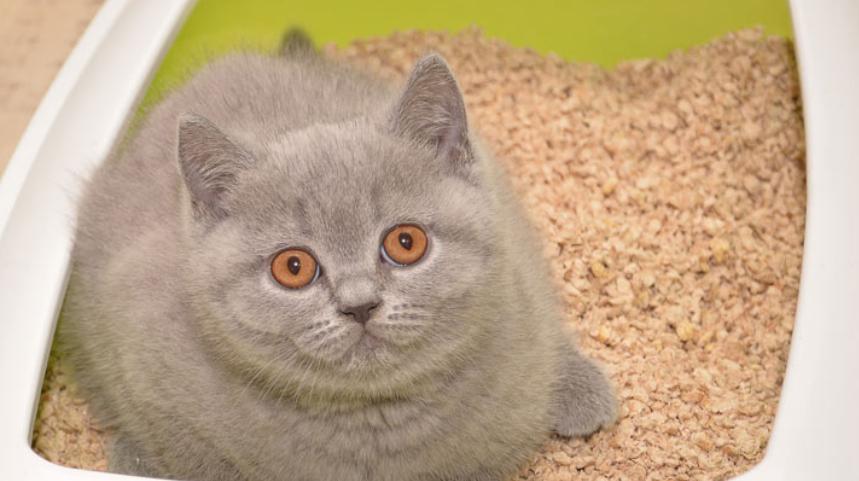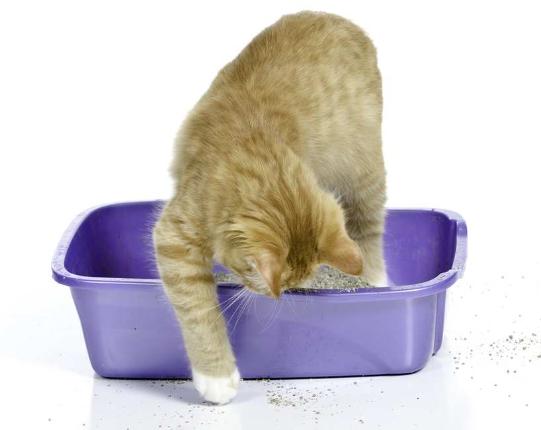If your cat is pooping outside the litter box, it can be a frustrating issue to deal with. This behavior, though upsetting, is often a sign that something is wrong. Cats are naturally clean animals, so when they stop using the litter box, it usually points to a problem that needs addressing. From health issues to behavioral changes, several factors can cause a cat to avoid the litter box. Why is my cat pooping outside the litter box? In this guide, we’ll explore the most common reasons why cats poop outside the litter box and provide solutions to help you get your feline friend back on track. Whether it’s a medical issue, stress, or a problem with the litter box itself, understanding the root cause is key to resolving the issue. Let’s look at what might be going on and how to fix it.

What Are the Main Reasons Cats Poop Outside the Litter Box?
Cats are naturally inclined to use their litter box, but certain issues can interfere with this habit. Understanding the potential causes behind litter box avoidance is the first step in resolving the problem.
Health Problems
Health problems are one of the leading reasons cats avoid the litter box. Conditions like digestive issues, constipation, or diarrhea can make it uncomfortable for your cat to use the box. If your cat associates the litter box with pain or discomfort, they may choose to poop elsewhere. Medical issues like urinary tract infections or kidney disease can also affect their bathroom habits. If your cat is consistently avoiding the litter box, a vet visit is necessary to rule out any underlying health problems.
Stress and Anxiety
Stress and anxiety can also trigger litter box avoidance in cats. Changes in the household, such as moving to a new home, rearranging furniture, or introducing new pets, can make your cat feel uneasy. Cats are sensitive to their environment, and stressful situations can lead to changes in their behavior, including inappropriate elimination. Identifying and reducing the sources of stress can help resolve this issue, ensuring that your cat feels safe and comfortable using the litter box again.
Behavioral Issues
Sometimes, behavioral issues are to blame for your cat pooping outside the litter box. Cats may develop negative associations with the box, especially if it’s not kept clean or if they’ve had a bad experience. Territorial marking or conflicts with other cats in the household can also lead to inappropriate elimination. In these cases, addressing the behavioral problem through environmental enrichment, litter box management, and possibly consulting a feline behaviorist can help restore proper litter box usage.
How Health Conditions Can Affect Litter Box Use
Health issues often play a significant role in why cats stop using the litter box. Identifying these issues can help you take the right steps to get your cat back to their routine.
Digestive Problems
Digestive problems such as constipation, diarrhea, or irritable bowel syndrome (IBS) can make it uncomfortable for your cat to use the litter box. If your cat experiences pain or discomfort when pooping, they may start associating the litter box with negative experiences. As a result, they might avoid the box entirely and seek out other locations to relieve themselves. Cats with diarrhea may struggle to reach the litter box in time, while those with constipation might choose to go elsewhere because they’ve experienced discomfort there before. Addressing these digestive issues through diet changes or medications prescribed by your vet is essential to getting your cat back to using the litter box.
Arthritis or Mobility Issues
Older cats or those with mobility issues like arthritis may have trouble using the litter box due to pain or stiffness. Climbing into a box with high sides or walking on litter that feels uncomfortable on their sensitive joints can discourage them from using it. Cats with arthritis might seek out easier, more accessible places to go to the bathroom, such as soft rugs or corners of the house. If mobility is the issue, providing a litter box with low sides or using a softer, more comfortable litter can help alleviate their discomfort and encourage them to return to proper litter box use.
Urinary Tract Infections
Urinary tract infections (UTIs) can cause cats to avoid the litter box because they associate it with pain while urinating. Cats with UTIs often experience increased urgency to urinate, discomfort, and sometimes even blood in the urine. If your cat has a UTI, they may start pooping outside the box in an effort to avoid the pain associated with using it. A vet can diagnose and treat UTIs with antibiotics, helping your cat feel better and resume normal litter box habits.
Can Stress Cause a Cat to Avoid the Litter Box?
Stress is a major trigger for litter box avoidance in cats. Even seemingly minor changes in their environment can make them feel uneasy and lead to behavioral changes.
Household Changes
Household changes, such as moving, redecorating, or even small adjustments in your cat’s environment, can cause significant stress for your pet. Cats are creatures of habit, and they often don’t react well to changes in their surroundings. A move to a new house or even something as simple as rearranging furniture can make your cat feel unsettled, leading them to poop outside the litter box. Creating a safe, quiet space for your cat during transitions and maintaining a consistent routine can help reduce their stress and keep them using the litter box.
New Pets or People
Introducing new pets or people into the household can also be a source of anxiety for cats. They may feel threatened or displaced, leading to behavioral changes like avoiding the litter box. If your cat starts pooping outside the box after a new family member or pet arrives, they could be marking their territory or reacting to the stress of the new dynamic. Slowly introducing the new pet or person and providing plenty of positive reinforcement for your cat can help ease their anxiety and restore litter box use.
Environmental Disruptions
Environmental disruptions such as loud noises, construction, or even visitors coming and going can trigger stress in cats, causing them to avoid the litter box. Cats are highly sensitive to changes in their surroundings, and sudden disruptions can make them feel unsafe. Providing your cat with a quiet, secluded spot where they can retreat when things get hectic can help reduce their stress and keep them using the litter box. Using calming sprays or pheromones may also help ease anxiety and prevent further litter box avoidance.
Is Your Litter Box Setup Causing the Problem?
Sometimes, the setup of the litter box itself can discourage your cat from using it. Making adjustments to the box and its location can make a big difference.
Litter Box Location and Size
The location and size of your litter box can play a significant role in whether or not your cat uses it. Cats prefer litter boxes that are easy to access and located in quiet, low-traffic areas. If the litter box is placed in a noisy or busy area, your cat may avoid using it. The size of the litter box also matters—if it’s too small, your cat may feel cramped and uncomfortable. Providing a spacious litter box in a calm, accessible location can encourage your cat to use it more regularly.
Litter Type and Cleanliness
Cats can be picky about the type of litter they prefer. Some cats dislike scented litters or certain textures, which can cause them to avoid the box altogether. It’s important to find a litter that your cat is comfortable with, whether it’s clumping, non-clumping, or made of natural materials. Additionally, cleanliness is a major factor—cats will avoid a dirty litter box. Regular scooping and cleaning are essential to keeping the box fresh and encouraging your cat to use it. Try to clean the litter box at least once a day and do a deep clean every week to prevent any buildup of waste or odors.
Solutions to Stop Your Cat from Pooping Outside the Litter Box
Addressing the root cause of litter box avoidance is crucial, but there are also practical steps you can take to encourage your cat to return to the box.
Improve Litter Box Accessibility
To encourage your cat to return to using the litter box, make sure it’s easily accessible. If your cat is older or has mobility issues, provide a box with low sides or multiple litter boxes around the house so they don’t have to travel far. Place boxes in quiet, private areas where your cat feels comfortable. If your cat dislikes the location of the current box, try moving it to a more secluded spot and see if that resolves the issue.
Address Health or Stress Issues
If a health condition or stress is causing your cat to poop outside the litter box, it’s essential to address the underlying problem. Visit your vet to rule out any medical issues and work on minimizing stress factors in your cat’s environment. Behavioral training or calming aids, such as pheromone sprays or diffusers, can also help alleviate anxiety and encourage proper litter box habits.
Maintain a Regular Cleaning Routine
A clean litter box is crucial for encouraging use. Cats are fastidious animals, and they may refuse to use a dirty box. Scoop out waste daily and do a thorough cleaning of the box and litter every week. Regular cleaning will keep the box smelling fresh and prevent your cat from seeking alternative places to do their business.

Conclusion
Why is my cat pooping outside the litter box? Pooping outside the litter box is a common issue that can arise from various health, behavioral, or environmental factors. Identifying the root cause—whether it’s a medical issue, stress, or an unsuitable litter box setup—is crucial for resolving the problem. By improving litter box accessibility, addressing sources of stress, and maintaining a clean environment, you can help your cat return to using the box consistently. If the problem continues, consulting your veterinarian is important to rule out medical concerns and receive advice tailored to your cat’s specific needs.
FAQs
How can I retrain my cat to use the litter box?
To retrain your cat, make sure the litter box is clean, accessible, and placed in a quiet area. If your cat has developed a negative association with the box, try changing the type of litter or the box’s location. Positive reinforcement, like treats and praise when they use the box, can also encourage them to return to proper habits.
How often should I clean my cat’s litter box to avoid accidents?
You should clean your cat’s litter box at least once a day by scooping out waste. Additionally, perform a deep clean of the box and replace the litter once a week to keep it fresh. Cats are more likely to avoid a dirty box, so keeping it clean is essential to preventing accidents outside the box.
What signs should I look for if a health issue is causing litter box avoidance?
If a health issue is causing litter box avoidance, you may notice symptoms such as diarrhea, constipation, straining while pooping, or blood in the stool. Other signs include changes in appetite, lethargy, or vocalizing during elimination. If you see these symptoms, consult your vet immediately for a proper diagnosis and treatment.
